Raccoon Removal
Raccoons often become a structural pest when they damage lawns, build nests in chimneys, attics or under porches. They are primary carrier of rabies in the state of NC.
- Raccoons are mammals that become problems when they raid garbage cans and bird/pet feeders, tear up gardens and lawns looking for food or use chimneys, attics, crawlspaces or hollow areas beneath porches and outbuildings for dens. Raccoons can be very vicious when cornered or protecting their young. They are the main carriers of rabies in our area and in the United States.
- Raccoons are omnivores – they eat both plants and animals
- Raccoons not only spread rabies through their saliva (which is 100% fatal in humans); they also spread raccoon roundworm eggs in their feces which cause damage to the liver, spleen, lungs, eyes, nervous system or possibly death in severe cases. Roundworm occurs when the eggs are accidently ingested/inhaled after contacting contaminated feces.
- Raccoons are very strong and agile. They have elongated “fingers” that allow them to pry open garbage can lids, rip off shingles, flashing , roof decking, fascia (trim) boards, rooftop ventilators, crawlspace vents and doors, attic insulation, insulation on HVAC lines and ductwork, etc..
- Raccoons will destroy gardens and lawns looking for vegetables, fruit, grubs (below sod), food scraps in garbage or compost, animal/bird food from feeders and other natural foods in the environment.
- Raccoons will establish latrines throughout their dens. In attics the feces and urine can stain the ceiling below – accompanied by an objectionable odor. In crawlspaces and under decks and buildings their waste is often throughout and on the vapor barrier (if one exists).
- Raccoons, as well as most wildlife, also carry a lot of ectoparasites (mites, fleas, ticks, bed bugs, etc.) which can infest adjacent living spaces especially after the animals are removed.
- When capturing raccoons it is important to identify if the animal is a lactating female (breast feeding the young) so the nest can be located and the young also removed.
- Raccoons are generally born in April or May (after the adults overwinter and mate) but earlier and later litters are not uncommon.
- A raccoon litter will range from 3-6 babies which will grow to 2-3 feet long and weigh 10-30 pounds. Family groups remain together for the first year then strike out on their own.
- Because of the plentiful availability of food and den sites, and because of their intelligence and adaptability, urban and suburban raccoon populations can quickly become very large.
Management/removal/exclusion:
- An initial thorough inspection is the most important part of solving a raccoon problem.
- Raccoons are usually trapped alive and then removed
- Raccoons have to be euthanized as required by law because of their high potential for rabies. Additionally, captured raccoons, if released would probably attack another dwelling.
- In addition to repairing the destroyed entry, we utilized custom cut galvanized steel flashing and galvanized steel hardware cloth to reinforce the exclusion areas. This is extremely important to prevent future infestations.
- We also remove the feces/urine and associated contaminated materials and treat with organic decomposition materials to clean and deodorize the area.
- If necessary, new insulation can be added by PCA along with other repairs/replacement of vents, shingles, etc.
- Finally, removal or securing any potential food sources will discourage new dominant raccoons from attempting to establish a new home site in the same area.
- Contact PCA to have a state licensed wildlife damage control agent develop a plan of action to solve your raccoon problem and our associated warranty.


